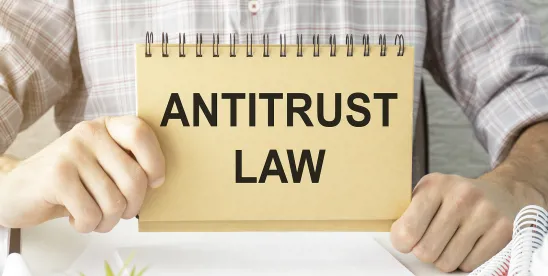Earlier this month, the Department of Justice (DOJ) Antitrust Division filed a consent decree fining venue management firm Legends Hospitality $3.5 million over allegations that Legends improperly coordinated with an acquisition target during the pre-closing waiting period imposed by the Hart-Scott-Rodino Antitrust Improvements Act of 1976 (or “HSR Act”). This type of premature coordination between merging parties, which are required to remain fully independent until the transaction has closed, is often referred to as “gun jumping.” The Legends consent decree also places significant restrictions on Legends’ ability to exchange information in future transactions with companies that could be considered competitors.
In papers filed August 5, the DOJ alleged that Legends had coordinated with ASM Global, Inc., a competitor it had agreed to acquire, while the transaction remained subject to the HSR Act waiting period. According to the complaint, Legends agreed to acquire ASM for $2.325 billion on November 3, 2023, and filed a premerger notification three days later on November 6. The initial 30-day waiting period was extended when DOJ issued a Second Request on January 8, 2024, presumably after Legends pulled and refiled its notification, and did not expire until May 29, 2024.
The DOJ charged Legends with three gun-jumping violations in its dealings with ASM between the November 3, 2023, agreement to merge and the May 29, 2024, expiration of the waiting period. According to the complaint:
- Legends won a bid in May 2023 to manage an arena in California upon expiration of the current contract, which ASM held. But after agreeing to acquire ASM, Legends decided to allow ASM to continue managing the arena rather than taking over, signing two agreements during the HSR Act waiting period that allowed ASM to continue booking events for the arena and to continue providing other venue management services rather than turning the business over to Legends.
- Legends executives discussed internally that they did not want both Legends and ASM to bid on a request for proposals regarding management of an entertainment complex in North Carolina. The executives agreed to contact ASM to learn whether it was bidding and ensure that only one of the two companies bid.
- In two separate instances involving arena development projects for universities, Legends and ASM initially began preparing separate bids to compete for the project but joined forces to submit a joint bid after entering into the merger agreement.
To settle DOJ’s charges, Legends agreed to pay a civil penalty of $3.5 million, or $20,000 per day for the 175 days that the complaint alleges Legends was in violation of the HSR Act.
In addition to the civil penalty, the consent decree imposes a number of restrictions on Legends going forward. First, during the negotiation or pendency of a potential merger or acquisition, Legends is prohibited from (a) sharing essentially any non-public information with any competitor, including through a third-party agent or consultant retained by Legends, or (b) agreeing with a competitor to bid jointly or for either party not to bid on any contract or other opportunity. The practical effect of these requirements is to cripple Legends’ ability to engage in due diligence with any company that could be considered a competitor. The only exception to the prohibitions has a limited scope, applying to situations where Legends and a competitor have agreed to jointly manage or develop a venue. And even this exception requires Legends to obtain written approval from its CEO or general counsel after securing the advice of antitrust counsel and consulting with an antitrust compliance officer that Legends must appoint, subject to DOJ’s approval.
Beyond the information-sharing prohibitions, the consent decree requires Legends’ newly appointed antitrust compliance officer to, among other things:
- Distribute the decree to various sales and other employees as well as key executives;
- Obtain certifications that each recipient has read and understands the decree and consequences for violating it;
- Provide annual antitrust compliance trainings to the same employees and executives as well as Legends’ board of directors; and
- File an annual report with DOJ affirming that Legends is complying with the decree.
The antitrust compliance officer also serves as a sort of ombudsman, with senior leadership at Legends obligated to report to the officer any potential violations of the consent decree or the antitrust laws. Following the investigation of such potential violations, the antitrust compliance officer must file a report with DOJ identifying the potential violation and the steps taken by Legends to remedy it.
The Legends consent decree drives home the critical importance for merging parties to remain fully independent until closing. The DOJ and Federal Trade Commission are on the alert for evidence of potential gun-jumping violations in addition to the substantive competitive implications of transactions during their review of HSR Act filings and Second Requests and are authorized by law to seek civil penalties that can exceed $50,000 per day for these and other HSR Act violations (see 15 U.S.C. § 18a(g)(1); 16 C.F.R. § 1.98). While prospective planning for integration is necessary and permissible, parties must carefully observe the distinction between planning and implementation. Merging parties should regularly remind their executives, as well as sales, marketing, and other relevant employees, of their obligation to maintain a “business as usual” posture of full independence all the way through closing of the transaction and should seek the advice of antitrust counsel regarding any contemplated information exchanges or other integration planning steps that could require antitrust safeguards.






 />i
/>i

